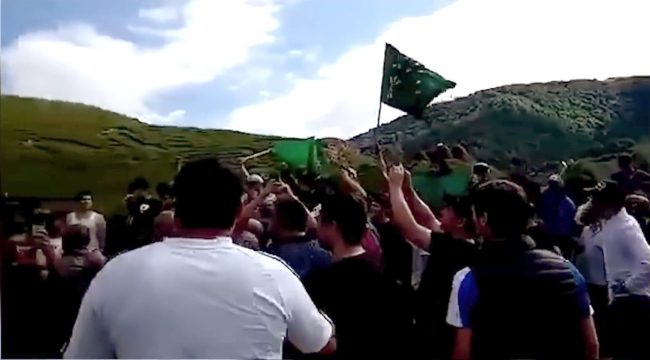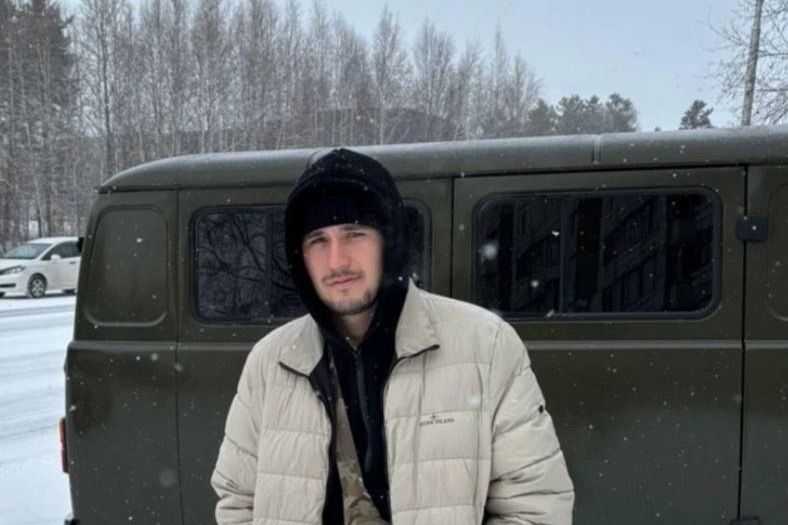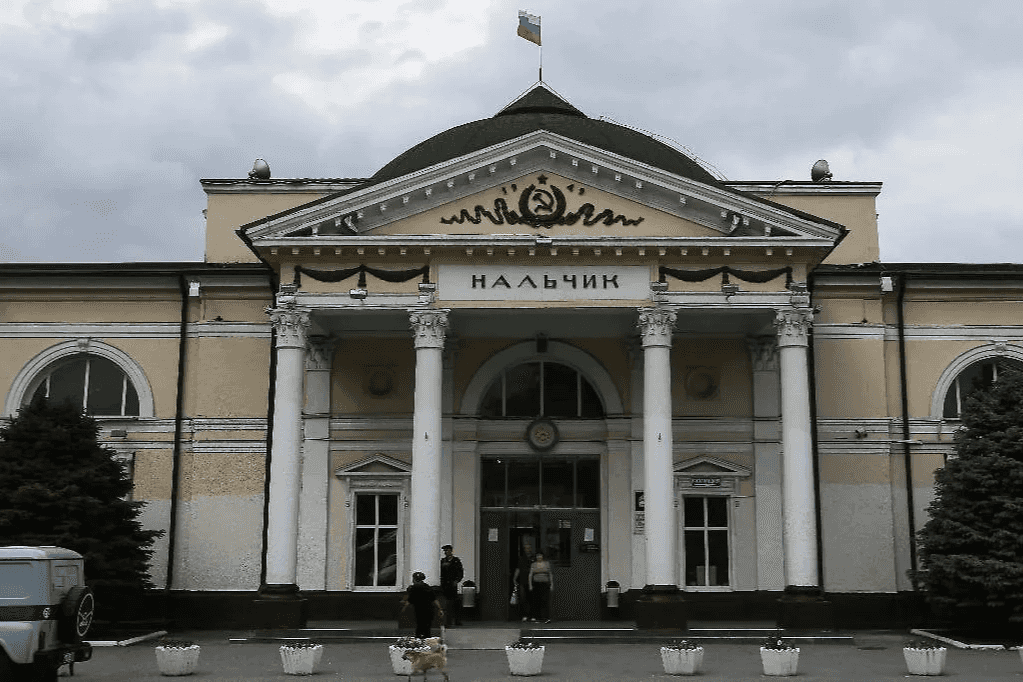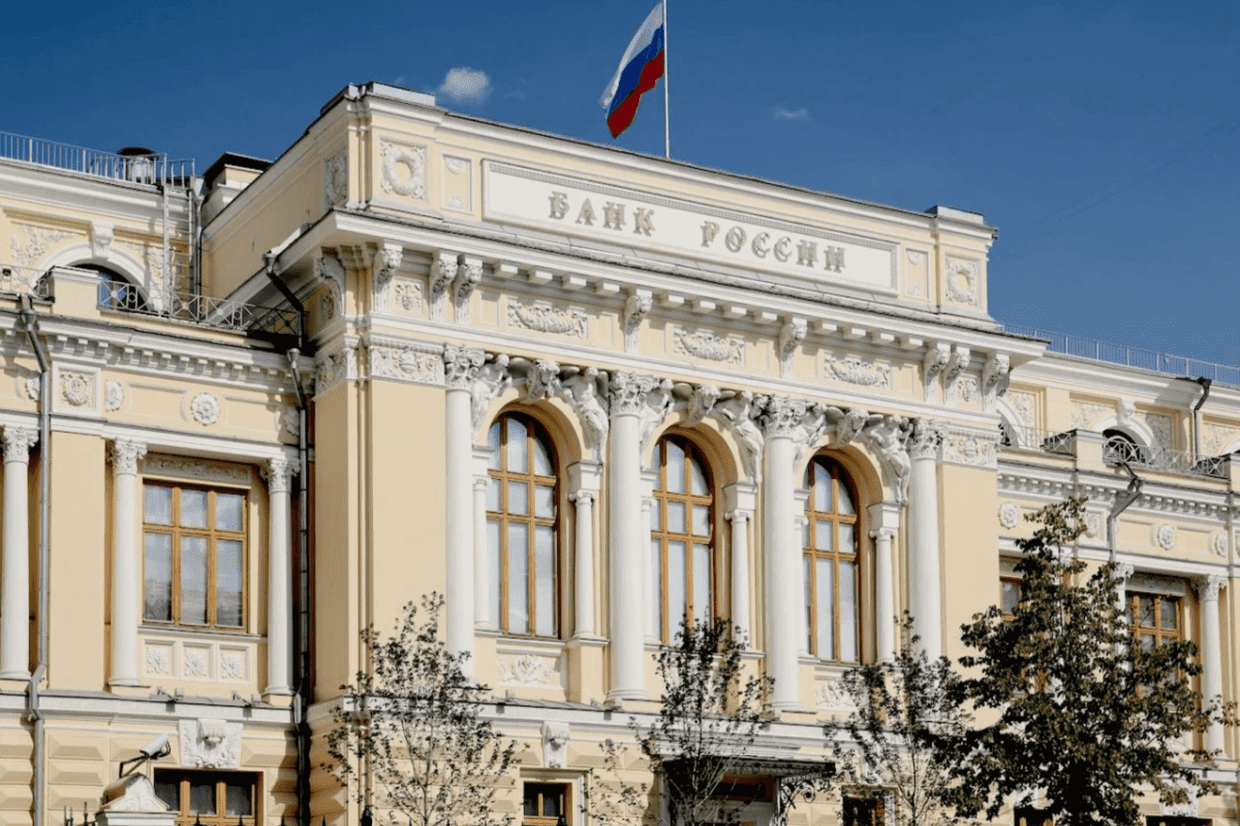

 Kabardian activists clashed with the residents of the Balkar village of Kyondelen on 18 September while trying to pass through to commemorate an 18th century battle. As of Friday, 120 people had been detained and 45 hospitalised in clashes between Kabardian and Balkar groups and police. Many experts believe that an old land dispute lies at the heart of the conflict.
Kabardian activists clashed with the residents of the Balkar village of Kyondelen on 18 September while trying to pass through to commemorate an 18th century battle. As of Friday, 120 people had been detained and 45 hospitalised in clashes between Kabardian and Balkar groups and police. Many experts believe that an old land dispute lies at the heart of the conflict.
On 17 September, thirty members of Kabardian community organisation Shuuyey Khase (the horsemen’s assembly) set off on horseback to climb Mount Kanzhal. The mountain sits at the foothills of Mount Elbrus, Europe’s highest peak, in the Russian Republic of Kabardino-Balkaria.
Of Shuuyey Khase’s 200 members, 170, including the organisation’s leader, Aslan Kudayev, abandoned the plan following a request from the authorities three days prior.
The men were attempting to commemorate the 310th anniversary of the victory of Kabardian troops over the Crimean Khanate near Kanzhal. Their march was obstructed by several dozen inhabitants of the ethnic Balkar village of Kyondelen, who blocked the road to prevent the horsemen from passing through.
The horsemen bypassed the village through the mountains but the incident upset a number of local Kabardians, whose arrival to Kyondelen the next day led to clashes between them and local Balkars.
‘A land issue’
Kabardians — a subgroup of Circassians — make up 57% of Kabardino-Balkaria’s population. The republic’s other eponymous ethnic group, the Balkars, constitute a minority of 13%. While Kabardians speak an indigenous Caucasian language — Circassian — Balkars speak a Turkic language and have cultural ties with other Turkic-speaking groups in the Caucasus, such as Karachays and Kumyks.
The 1708 Battle of Kanzhal is important for many Kabardians as it marked the end of incursions by the Crimean Khanate, a Turkic vassal state of the Ottoman Empire, into Kabardians’ historic state, Kabardia. Some Balkars argue that the battle never happened. Kabardia was fully annexed by the Russian Empire in the early 19th century during the Russian conquest of the Caucasus.
[Read more about controversies about Kabardia’s history on OC Media: ‘The Great Day of Unity’ vs ‘the tragedy of the genocide’: Kabardino-Balkaria’s contradictory public holidays]
According to several historians interviewed by Caucasian Knot, the historical dispute conceals the real reason for the conflict — an old land issue, where local Balkars fear that Kabardians are using the Battle of Kanzhal instrumentally to make a claim to pastures on Mount Kanzhal.
In 2008, on the 300th anniversary of the Battle of Kanzhal, residents of Kyondelen also prevented Kabardian horsemen from passing through the village. Kabardino-Balkaria’s then-president, Arsen Kanokov condemned the organisers of the march at the time for trying to ‘destabilise’ the republic.
The standoff
On 18 September, a day after the horsemen were prevented from passing through and bypassed Kyondelen through the mountains, several hundred Kabardians, mostly residents of the neighbouring village of Zayukovo, arrived at the village.
Carrying Circassian flags, they broke through a police cordon and entered Kyondelen, walking through its central street. A group of Balkar women prevented them from leaving the village.
A brawl subsequently broke out with two participants requiring hospitalisation.
Aslan Kardanov, an ethnic Kabardian resident of the village of Zayukovo who witnessed the confrontation, told OC Media that young people from Zayukovo and other Kabardian activists insisted that the horsemen return directly through Kyondelen.
He said they wanted ‘the authorities and Balkar elders to explain why Kabardians can’t walk through Kyondelen while Balkars can celebrate their return from Stalin’s exile [in 1957] in ethnic Kabardian villages and in Nalchik’.
A source in Kabardino-Balkaria’s police told OC Media the activists turned back, but decided to gather the next day to ‘ensure the unhindered return’ of the horsemen through the village. Groups of Kabardians and Balkars spent the night camping outside the entrance to the village.
‘We tried to convince them not to do this, [saying] that the authorities themselves would settle everything, but these young people still decided to gather’, the source said.
On 19 September, the leader of the horsemen, Ibragim Yaganov, told OC Media that they had returned to their homes without passing through Kyondelen.
On the same day, Kabardian activists clashed with police in Zayukovo and at the police checkpoint near the nearby town of Baksan.
‘Politicisation of history’
Former president of Kabardino-Balkaria, Arsen Kanokov, wrote on his Facebook page that ‘for some’ the conflict was ‘a pretext for aggravating the situation in the region in order to drive a wedge between two friendly nations […] There must be a thorough trial and those guilty of creating the conflict must be brought to justice’.
The Interethnic Council of Community Organisations of Karachay–Cherkessia as well as Karachay and Circassian community organisations Qarachay Alan Khalq and Youth Adyghe Khase issued statements urging people not to succumb to ‘provocations’ not to take part in the conflict.
Balkar historian Khadis Tetuyev warned against politicising history. He wrote on Facebook that it was ‘necessary to put an end to historical lies in the practice of Kabardino-Balkaria’s historians — it is precisely the so-called “research centres” that create myths and then, if necessary in any political game, play a role in the escalation of tension at the right time’.
A Kabardian activist and member of the Zhegu (hearth) public movement Zaur Zhemukha told OC Media that the authorities were to blame for their inaction.
‘The authorities don’t resolve social and economic problems, in particular the land issue, and unemployment is growing. When such exacerbations [as in Kyondelen] arise, the authorities remain silent, don’t comment or inform the population. This information vacuum is quickly filled by provocateurs or simply stupid people who spread false information’, Zhemukha said.
Denis Sokolov, a researcher on the Russian Caucasus wrote in an article for Caucasian Knot that ‘the land conflict in the republic […] is not a dispute between Balkars and Kabardians, but three different conflicts. The first one is for control over land resources between the leaders of Balkar rural communities and the Kabardian political elite which controls the republic’s bureaucracy. The second one is between landowners, controlling about two-thirds of tilled land, and the rural population. The third one are urban battles around Belaya Rechka, Khasanya, Volny Aul, etc’.
The authorities of Kabardino-Balkaria have not commented on the events in Kyondelen.









